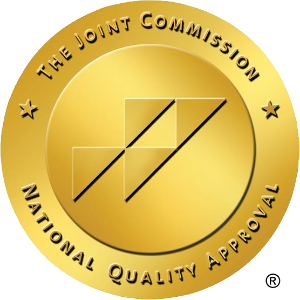On our previous blog, we discussed how having healthy habits can help someone in recovery to achieve holistic healing as well as continually reduce the likelihood of relapse after rehab. This time, we aim to share how to best implement the good habits that you choose to adopt while undergoing your own recovery process.
Recovery is different for everyone, and so as creating new habits. Some types of habits may work well for a friend but it doesn’t mean that it’s the best thing for you to practice. So before even starting to fully adopt a specific habit, it is important to decide if it really is something that helps you move forward with your journey to rehab and recovery. As pursuing long-term sobriety can be very challenging, you need to give yourself a chance to adjust and enough time to decide what steps are best to take. Having the right goals to pursue will prevent you from exerting too much effort on things that are not well-suited for your current condition.
Here are some guidelines on how to choose and implement habits that are perfect for you:
- Give yourself time to learn and understand the process.
Habits are formed through consistency and repetition. But first, there is a need for your brain to learn the overall process that makes the action successful for it to create new neural pathways that will eventually lead to forming a new unconscious habit. In other words, you need to focus on how an action is done and perform it over and over again in the same way. The more you do it, the more it becomes deep-rooted on your brain until the action becomes natural and automatic.
Example:
If you want to sleep early, you can decide a fixed time to go to bed. Let’s say, 9 PM. After having dinner, set an alarm for 9 PM as your bedtime. This way, you are setting up a cue or trigger that will prompt you that it’s time to go to bed. At the same time, you are telling yourself to get everything done before the alarm sets off. Do this every single day in the same pattern. Sooner or later, you’ll automatically set the alarm every time you finish eating dinner. You’ll also go to bed around the same time each night without worrying about unfinished tasks.
- Be realistic by starting small.
One of the main reasons why people fail to stick to a habit is because of unrealistic goals. Normally, people either attempt to do too-much-too-soon or get really excited about progress without even realizing that they are setting unachievable goals for themselves. To avoid falling into this trap, the advisable approach is to set very small and straightforward goals that you certainly can fulfill. Reflect and be truthful to yourself in order to decide on practical habits that will make you move forward instead of making you feel discouraged due to failed adherence.
Examples:
- If you want to eat healthier foods, start by replacing a heavy meal with a salad once a week.
- If you want to work out, start by doing only 5-10 push-ups a day.
- If you want to lessen screen time, reduce your phone browsing by 15 minutes per day.
- Reward yourself.
Doing a particular habit involves three components. The trigger, which is an environmental cue that prompts you to take action; the action, which is the part where you perform the habit; and the reward, which is a way of compensating yourself for doing the action.
The thing is, most people miss the final part of the habit loop, which is rewarding themselves whenever they were able to do a particular habit. When we receive a reward in exchange for something we’ve done, our brain releases dopamine – the neurotransmitter responsible for feelings of happiness and pleasure. When the rewarding part happens often, our brain incorporates the habit to positive feelings, which is what motivates us to repeat the habit over and over again.
Example:
After completing a workout session, eat dark chocolate. Yes! Studies have shown that dark chocolates with at least 70% cacao can help you recover post-workout due to the antioxidants that can fight free radicals. Apart from being beneficial, it can also be the perfect reward system if you are shaping a workout habit because it is a tasty treat that will surely fire up those dopamine levels.
- Find the perfect pace but do not tolerate non-adherence.
A habit isn’t formed overnight. There will be times when you will fail to keep a habit, and that’s okay. Rushing on things will only make you pressured, disappointed and disheartened. So keep the pace that is perfect for you. Feel free to try out multiple habits but remember that you may need to eventually let go of some of them as they may not be suitable for you and your recovery process.
Do your best to not fail twice. For instance, if you missed meditating today, ensure that you will do it tomorrow. This way, you’re progress is consistent and you will not get used to letting your failures slide.
Example:
In reconnecting with families and repairing bonds that were lost due to addiction, you may decide to make a habit of visiting your loved ones again. To determine the best pace for you to get used to this habit, you may start by visiting them once a month. Once you feel that you’re ready to take a step further, you may try to begin visiting them twice a month, then more often as time goes by.
In trying to establish new habits, do not let time, failure or inconsistency put you off. As someone who’s undergoing rebirth through recovery, you need to be good to yourself by being honest about the things that you can and cannot achieve as of the moment. As long as you keep on moving forward and not getting back to bad habits, you will be able to experience holistic healing and recovery at the right time.
Contact us at Next Level Recovery should you need assistance in addiction treatment and recovery. Our substance abuse recovery programs as well as our dual-diagnosis treatment are personalized and always in accordance with our “whole-life” approach. Call (888) 303-2785 for more information.





